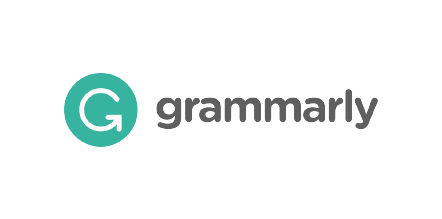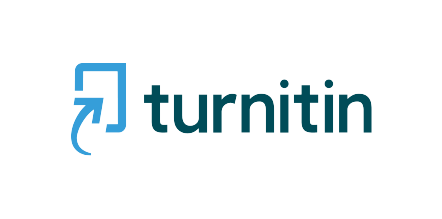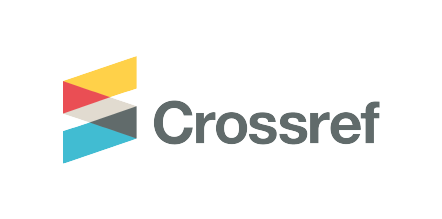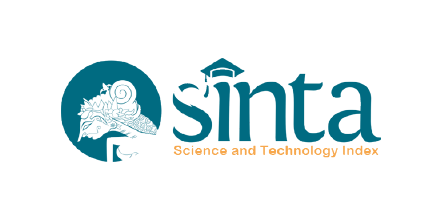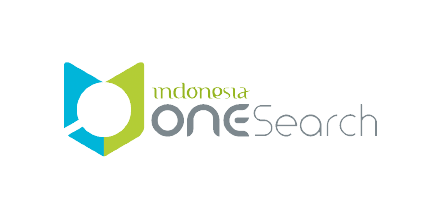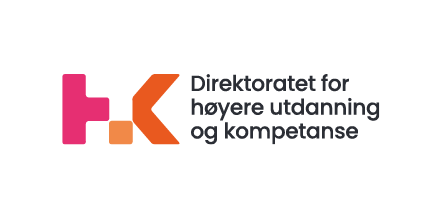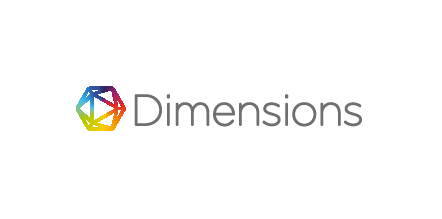Proactive Advising for University Students with Disabilities in the Global South
Applying Basic Counseling Responses
DOI:
https://doi.org/10.21776/ub.ijds.2023.10.02.1Keywords:
Proactive Advising, University, Disabillity, Higher Education, Global SouthAbstract
From the framework of the proactive or intrusive advising approach, this paper presents a plausible method for addressing the academic and social issues stemming from being a university student with a disability and living in an under-resourced country. This paper will 1) address the necessity of support services for students with disabilities on university campuses in the Global South; 2) present proactive advising as a mechanism for university student advocacy and support at universities in the Global South; 3) highlight policy obligations of the Convention on the Rights of Persons with Disabilities (CRPD) regarding the education of students with disabilities; and 4) introduce basic counseling responses as a culturally appropriate approach for university professionals to build rapport, actively engage, and promote reflection with students with disabilities in their pursuits of optimal academic achievement. Recommendations will be provided for sustainable top-down and bottom-up approaches for student support and faculty development.
References
Abrahams, D., Batorowicz, B., Ndaa, P., Gabriels, S., Abebe, S. M., Xu, X., & Aldersey, H. M. (2023). “I’m not asking for special treatment, I’m asking for access”: Experiences of university students with disabilities in Ghana, Ethiopia and South Africa. Disabilities (Basel, Switzerland), 3(1), 114–128. doi.org/10.3390/disabilities3010009
Abu-Hamour, B. (2013). Faculty attitudes toward students with disabilities in a public university in Jordan. International Education Studies, 6(12). https://doi.org/10.5539/ies.v6n12p74
Adigwe, P., & Okoro, E. (2016). Human communication and effective interpersonal relationships: An analysis of client counseling and emotional stability. International Journal of Economics & Management Sciences, 05(03). https://doi.org/10.4172/2162-6359.1000336
Ajaj, R. (2022). Exploring the academic and social integration of students who are blind and visually impaired attending a Saudi Arabian university. [Doctoral dissertation, The University of Minnesota]. https://conservancy.umn.edu/bitstream/handle/11299/243085/Ajaj_umn_0130E_23691.pdf?sequence=1
Akande, A. O. (2017). A narrative interviewing technique for master’s level counselors in case management roles. Journal of Nurse Life Care Planning, 17(2), 40–44.
Akande, A. O. (2023). Vocational rehabilitation and long COVID-19: Utilizing a matrix for multi-level interventions. Rehabilitation Professional, 31(2).
Araneda-Urrutia, C., & Infante, M. (2020). Assemblage theory and its potentialities for dis/ability research in the global south. Scandinavian Journal of Disability Research: SJDR, 22(1), 340–350. https://doi.org/10.16993/sjdr.698
Aubel, J. (2021). Grandmothers – a neglected family resource for saving newborn lives. BMJ Global Health, 6(2), e003808. https://doi.org/10.1136/bmjgh-2020-003808
Azizi, N. N. H., Asmaaâ, S. N., Azman, S., Muâ, A., & Soberi, A. M. (2021). Persons with disabilities: A comparative study between Malaysia, United Kingdom and Philippines. Environment-Behaviour Proceedings Journal, 6(SI6), 117-123.
Baloyi, M. L. (2019). The management of student retention and success at technical and vocational education and training colleges in Limpopo Province. [Doctoral dissertation, University of South Africa]. https://core.ac.uk/download/pdf/328838869.pdf
Barida, M., Rofiah, N. H., & Fitrianawati, M. (2020). Acceptability of students with disabilities in higher education: Towards inclusive education at Universitas Ahmad Dahlan, Indonesia. International Journal of Educational Research Review, 5(2), 151-158.
de Beco, G. (2018). The right to inclusive education: Why is there so much opposition to its implementation? International Journal of Law in Context, 14(3), 396–415. https://doi.org/10.1017/s1744552317000532
Carlisle, D. D. (2022). Disability support for students with special educational needs at institutes of higher learning in Singapore: A historical perspective to developments in education policy. Disability and the Global South, 9(1), 2130-2151.
Chiwandire, D. & Vincent, L., (2019) Funding and inclusion in higher education institutions for students with disabilities. African Journal of Disability 8(0), a336. https://doi.org/10.4102/ajod. v8i0.336
Clarke, M. (2018). Global South political commentaries. University of Victoria, The Online Academic Community. https://onlineacademiccommunity.uvic.ca/globalsouthpolitics/2018/08/08/global-south-what-does-it-mean-and-why-use-the-term/
Earl, W. R. (1988). Intrusive advising of freshmen in academic difficulty. NACADA Journal, 8(2), 27-33.
Emong, P., & Eron, L. (2016). Disability inclusion in higher education in Uganda: Status and strategies. African Journal of Disability, 5(1). https://doi.org/10.4102/ajod.v5i1.193
Frey, L. L. (2013). Relational-cultural therapy: Theory, research, and application to counseling competencies. Professional Psychology, Research and Practice, 44(3), 177–185. https://doi.org/10.1037/a0033121
Glennen, R. E. (1976). Intrusive college counseling. The School Counselor, 24(1), 48– 50.
Gomes, F. V., Rincón-Cortés, M., & Grace, A. A. (2016). Adolescence as a period of vulnerability and intervention in schizophrenia: Insights from the MAM model. Neuroscience and Biobehavioral Reviews, 70, 260–270. https://doi.org/10.1016/j.neubiorev.2016.05.030
Gregorius, S. (2017). Combining multiple qualitative methods in research on young disabled people in the global south. In R. Evans & L. Holt (Eds.), Methodological Approaches (pp. 285–302). Springer Singapore.
Haney, J. H., & Liebsohn, J. (1999). Basic counseling responses: A multimedia learning system for the helping professions. Brooks/Cole.
Harpur, P., & Stein, M. (2022). The U.N. Convention on the Rights of Persons with Disabilities and the Global South. Yale Journal of International Law, 47(1), 75- 118.
Harris, T. A. (2018). Prescriptive vs. developmental: Academic advising at a historically Black university in South Carolina. NACADA Journal, 38(1), 36–46. https://doi.org/10.12930/nacada-15-010
Hugman, R. (2009). But is it social work? Some reflections on mistaken identities. British Journal of Social Work, 39(6), 1138–1153. https://doi.org/10.1093/bjsw/bcm158
Hunting Pompon, R. (2021). Basic counseling skills: Working with people with aphasia and their families. Perspectives of the ASHA Special Interest Groups, 6(5), 1003–1014. https://doi.org/10.1044/2021_persp-20-00298
Jansen, D., Petry, K., Ceulemans, E., Noens, I., & Baeyens, D. (2017). Functioning and participation problems of students with ASD in higher education: Which reasonable accommodations are effective? European Journal of Special Needs Education, 32(1), 71–88. https://doi.org/10.1080/08856257.2016.1254962
Jenks, A. B. (2017). Rights enabled or disabled? The UN CRPD and fixing meanings of disability in the Global South. Unpublished doctoral dissertation, University of Delaware. https://www.academia.edu/31750676/Rights_Enabled_or_Disabled_The_UN_CRPD_and_Fixing_Meanings_of_Disability_in_the_Global_South
Jokinen, J. C., & Caretta, M. A. (2016). When bodies do not fit: An analysis of postgraduate fieldwork. Gender, Place and Culture: A Journal of Feminist Geography, 23(12),1665–1676. https://doi.org/10.1080/0966369x.2016.1249343
Kamuya, D. M., Theobald, S. J., Marsh, V., Parker, M., Geissler, W. P., & Molyneux, S. C. (2015). “The one who chases you away does not tell you go”: Silent refusals and complex power relations in research consent processes in coastal Kenya. PloS One, 10(5), e0126671. https://doi.org/10.1371/journal.pone.0126671
Kitchen, J. A., Hallett, R. E., Perez, R. J., & Rivera, G. J. (2019). Advancing the use of ecological systems theory in college student research: The ecological systems interview tool. Journal of College Student Development, 60(4), 381–400. https://doi.org/10.1353/csd.2019.0043
Kunnath, S. K., & Mathew, S. N. (2019). Higher education for students with disabilities in India: Insights from a focus group study. Higher Education for the Future, 6(2), 171–187. https://doi.org/10.1177/2347631119840540
Lessy, Z., Kailani, N., & Jahidin, A. (2021). Barriers to employment as experienced by disabled university graduates in Yogyakarta, Indonesia. Asian Social Work and Policy Review, 15(2), 133-144.
Lord, J. E., & Stein, M. A. (2018). Pursuing inclusive higher education in Egypt and beyond through the Convention on the Rights of Persons with Disabilities. Social Inclusion, 6(4), 230-240. https://doi.org/10.17645/si.v6i4.1709
Ma, K., Pitner, R., Sakamoto, I., & Park, H. Y. (2020). Challenges in acculturation among international students from Asian collectivist cultures. Higher Education Studies, 10(3), 34. https://doi.org/10.5539/hes.v10n3p34
Madhesh, A. (2023). Quality of life of higher education students with disabilities at Shaqra University. Research in Developmental Disabilities, 138, 104520. https://doi.org/10.1016/j.ridd.2023.104520
Manase, N. (2020). Narratives of capability formation for students with learning disabilities at a South African university. [Doctoral Dissertation, the University of the Free State, Bloemfontein]. https://scholar.ufs.ac.za/bitstream/handle/11660/11091/ManaseN.pdf?sequence=1&isAllowed=y
Marshall, J. E., & Wickenden, M. (2018). Services for people with communication disabilities in Uganda: Supporting a new speech and language therapy profession. Disability and the Global South, 5(1), 1215-1233.
McKinney, E. L., & Swartz, L. (2020). Integration into higher education: Experiences of disabled students in South Africa. Studies in Higher Education, 47(2), 367-377. https://doi.org/10.1080/03075079.2020.1750581
Mir, A. A., & Waheed, A. (2022). Experiences of students with disabilities in Indian higher education: An interpretative phenomenological study. Higher Education for the Future, 9(2), 186–202. https://doi.org/10.1177/23476311221111442
Moasun, F.Y. (2023). Deconstructing disability from a Global South perspective: Examples from an interpretive phenomenological study. In C. Riegel & K.M. Robinson, (Eds.). Health Humanities in Application. Sustainable Development Goals Series (pp. 223-246). Palgrave Macmillan, Cham.
Muchineripi, M., Arko-Achemfour, A., & Quan-Baffour, K. P. (2022). The role of student support systems in student integration and persistence at a TVET College in South Africa. Journal of Technical Education and Training, 14(2). https://doi.org/10.30880/jtet.2022.14.02.010
Murungi, L. N. (2015). Inclusive basic education in South Africa: Issues in its conceptualisation and implementation. PER, 18(1), 3160–3195. https://doi.org/10.4314/pelj.v18i1.07
Ohi, K., Hashimoto, R., Yamamori, H., Yasuda, Y., Fujimoto, M., Nakatani, N., Kamino, K., & Takeda, M. (2013). How to diagnose the 22q11.2 deletion syndrome in patients with schizophrenia: A case report. Annals of General Psychiatry, 12(1), 29. https://doi.org/10.1186/1744-859X-12-29
Pudaruth, S., Gunputh, R. P., & Singh, U. G. (2017). Forgotten, excluded or included? Students with disabilities: A case study at the University of Mauritius. African Journal of Disability, 6(0), 359. https://doi.org/10.4102/ajod.v6i0.359
Robledo, M. V., Edwards, M. B., Bocarro, J. N., Behnke, A. O., & Casper, J. M. (2022). Examination of ecological systems contexts within a Latino-based community sport youth development initiative. Frontiers in Sports and Active Living, 4, 869589. https://doi.org/10.3389/fspor.2022.869589
Rrofiah, K., Ngenge, R. T., Sujarwanto, S., & Ainin, I. K. (2023). Inclusive education at Universitas Negeri Surabaya: Perceptions and realities of students with disabilities. International Journal of Special Education, 38(2), 14-25.
Schwartz, A. (2016). A national mixed methods research study: Defining reasonable accommodations in higher education for adult students with disabilities. [Doctoral Dissertation, Walden University]. https://scholarworks.waldenu.edu/cgi/viewcotent.cgi?artcle=4048&context=dissertations
Sipuka, O. (2021). Exploring a framework for decolonised disability-inclusive student walk support practices in an open and distance learning institution. [Doctoral Dissertation, University of Cape Town]. https://open.uct.ac.za/bitstream/handle/11427/34003/thesis_hsf_2021_sipuka%20olwethu.pdf?sequence=1&isAllowed=y
Siu, A. F. Y., & Chang, J. F. (2011). Coping styles and psychological distress among Hong Kong university students: Validation of the collectivist coping style inventory. International Journal for the Advancement of Counseling, 33(2), 88– 100. https://doi.org/10.1007/s10447-011-9114-8
Sniatecki, J. L., Perry, H. B., & Snell, L. H. (2015). Faculty attitudes and knowledge regarding college students with disabilities. Journal of Postsecondary Education and Disability, 28(3), 259–275.
Stein, M.A. (2022, March 28). BU Law Pike Lecture: The Convention on the Rights of Persons with Disabilities in the Global South. Harvard Law School Project on Disability. https://hpod.law.harvard.edu/events/event/convention-on-the-rights-of-persons-with-disabilities-and-the-global-south-at-bu-school-of-law
Thomason, T. (2012). Recommendations for counseling Native Americans: Results of a survey. Journal of Indigenous Research, 1(2), 1–10.
Tudzi, E. P., Bugri, J. T., & Danso, A. K. (2017). Human rights of students with disabilities in Ghana: Accessibility of the university-built environment. Nordic Journal of Human Rights, 35(3), 275–294. https://doi.org/10.1080/18918131.2017.1348678
United Nations. (2023). Convention on the Rights of Persons with Disabilities (CRPD). Department of Economic and Social Affairs. https://social.desa.un.org/issues/disability/crpd/convention-on-the-rights-of-persons-with-disabilities-crpd
United Nations Department of Economic and Social Affairs. (n.d.). Disability laws and acts by country/area. https://www.un.org/development/desa/disabilities/disability-laws-and-acts-by-country-area.html
Vianden, J. (2016). Ties that bind: Academic advisors as agents of student relationship management. NACADA Journal, 36(1), 19–29. https://doi.org/10.12930/nacada-15-026a
White, J. L., & Massiha, G. H. (2015). Strategies to increase representation of students with disabilities in science, technology, engineering and mathematics (STEM). International Journal of Evaluation and Research in Education, 4(3), 89. https://doi.org/10.11591/ijere.v4i3.4497
World Health Organization. (2023). Disability. World Health Organization. https://www.who.int/health-topics/disability
Yeiser, B. (2017). My triumph over psychosis: A journey from schizophrenia and homelessness to college graduate. Schizophrenia Bulletin, 43(5), 943-945. https://doi.org/10.1093/schbul/sbw073
Yilma, T. M., Mekonone, S. T., Alene, B. M., Kibret, A. K., Alemayehu, Z., Addis, B. M., Menna, D. W., & Davies, T. C. (2023). Assistive technology use and its associated factors among university students with disabilities: A case study in a developing country-mixed study design. Disability and Rehabilitation: Assistive Technology, 1–10. https://doi.org/10.1080/17483107.2023.2233981.
Published
How to Cite
License
Copyright (c) 2023 Abigail Akande

This work is licensed under a Creative Commons Attribution-NonCommercial 4.0 International License.







